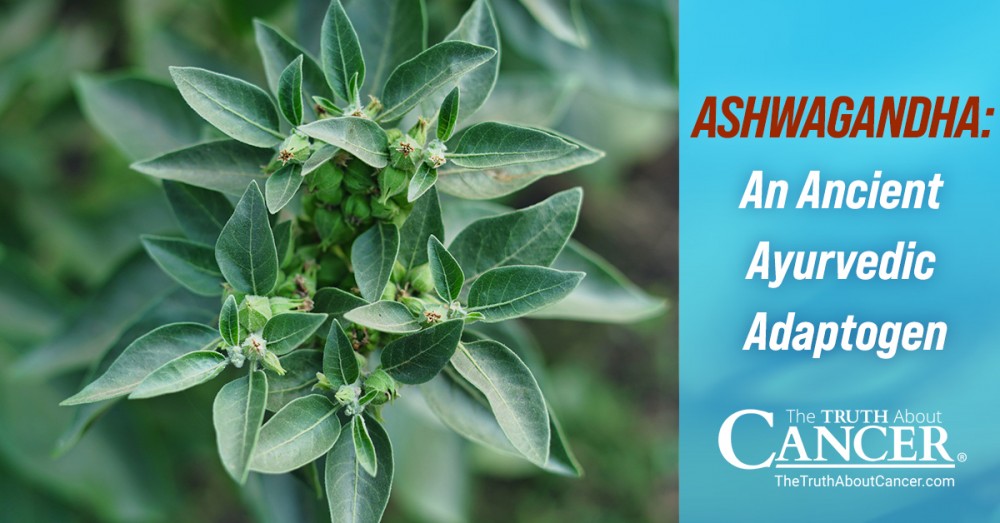Ashwagandha (also known as “Indian ginseng” or “winter cherry”) is an ancient medicinal herb that’s been used for over 4,000 years and is classified as an adaptogen, meaning that it can help your body handle stress. Traditionally, this herb has been used as an aphrodisiac, liver tonic, anti-inflammatory agent, and astringent.
Its medicinal benefit is found within its strong and vital root system, and the name “ashwagandha” literally means “smell of the horse” which refers to its unique odor and also its ability to impart the strength and vitality of a stallion. Ashwagandha is a highly revered herb in the Ayurvedic apothecary and is considered the “King of Ayurvedic Herbs.” Although native to India, the Middle East, and North Africa, ashwagandha plants can be cultivated in temperate climates around the world, including the USA.
Adaptogens restore and promote balance and help manage hormone levels. Ashwagandha is particularly effective because it can assist the adrenal system in regulating the body’s reaction to stress. When confronted by a threat, the adrenal system releases stress hormones, like adrenaline and cortisol, and if those hormone levels remain high for extended periods, they can cause health problems like adrenal fatigue. When this happens, a person’s blood sugar increases, causing them to gain weight. Research suggests that taking ashwagandha can help reduce cortisol levels, especially among people who are chronically stressed. In an animal study, researchers discovered that the herb helps block the stress pathway in the brains of rats by regulating the chemical signaling in their nervous system.
NK cells are immune cells that fight infection. Ashwagandha also powerfully stimulates the immune system, increases disease-fighting white blood cell production and activity, and elevates levels of superoxide dismutase and glutathione peroxidase, two of the most powerful antioxidants and health-promoting substances known to man. Ashwagandha also helps decrease markers of inflammation, like C-reactive protein (CRP). CRP is associated with a greater risk of developing heart disease. Those facts should help you sleep better … literally!
In a study published in PLOS ONE, Japanese researchers described an active component in ashwagandha as “a potent sleep-inducing small molecule.” The research team studied the effects of the different components of ashwagandha on sleep in mice. They discovered that the water extract of ashwagandha leaves contains a compound called “triethylene glycole” which induces “physiologically sound sleep.”
Ashwagandha has also been shown in research studies at universities in Japan to regenerate nerve cells and dendrite growth throughout the brain and body, making it an option for treating neurodegenerative diseases like Parkinson’s and Alzheimer’s.
Mounting evidence suggests that ashwagandha’s high concentration of “withanolides” can prevent tumor growth. In 1967, it was first demonstrated experimentally that the root extract resulted in lowered cancer incidence in vivo. Since then, research interest in ashwagandha as an anti-tumorigenic agent has grown, apparently from the increase in the number of publications citing withaferin A (one of the “withanolides” of the ashwagandha plant) as cytotoxic to cancer cells and may also inhibit angiogenesis (formation of new blood vessels).
The most significant activity of the herb was induction of apoptosis (death) in cancer cells. Ashwagandha can also generate reactive oxygen species (ROS) that are toxic to cancer cells but not to normal cells. Animal studies indicate that ashwagandha can be used to treat several types of cancer, including lung, colon, brain, ovarian, and breast cancer.
The anti-aging effects of ashwagandha were shown in a double-blind clinical trial in which over one hundred healthy men (aged 50–59) were given ashwagandha for one year. During that period, significant improvements in hair melanin concentrations, serum cholesterol concentrations, red blood cell counts, and hemoglobin were observed.
According to several studies, ashwagandha can also help alleviate depression. In a controlled 60-day study involving 64 adults, those who took ashwagandha each day had a 79% reduction in severe depression symptoms. On the other hand, the placebo group experienced a 10% increase.
Ashwagandha has been shown in animal and human studies to increase acetylcholine levels in the brain, which are correlated with improved brain function and memory. Another of ashwagandha’s amazing benefits is that it also elevates levels of GABA (your brain’s “calming” neurotransmitter) and increases nitric oxide production by regulating the blood flow and pressure of the arterial system, which elevates oxygen levels in the brain, leading to improved cognition.
Last but certainly not least, ashwagandha helps stimulate DHEA, a hormone produced by the adrenal glands which is a precursor to testosterone and estrogen, which is vital in the production of the skin’s natural protective oils. Ashwagandha promotes the production of vital compounds and proteins for healthy skin, such as hyaluronan for skin hydration, elastin to keep the skin supple, and collagen for skin strength.
[Editor’s Note: Ashwagandha is an incredible herb, but it must never be given to pregnant women. The various chemical constituents can lead to abortion of the fetus. Also, individuals with autoimmune diseases and people taking medication for thyroid disease should be careful when taking ashwagandha.]



















Thanks for the Great info!